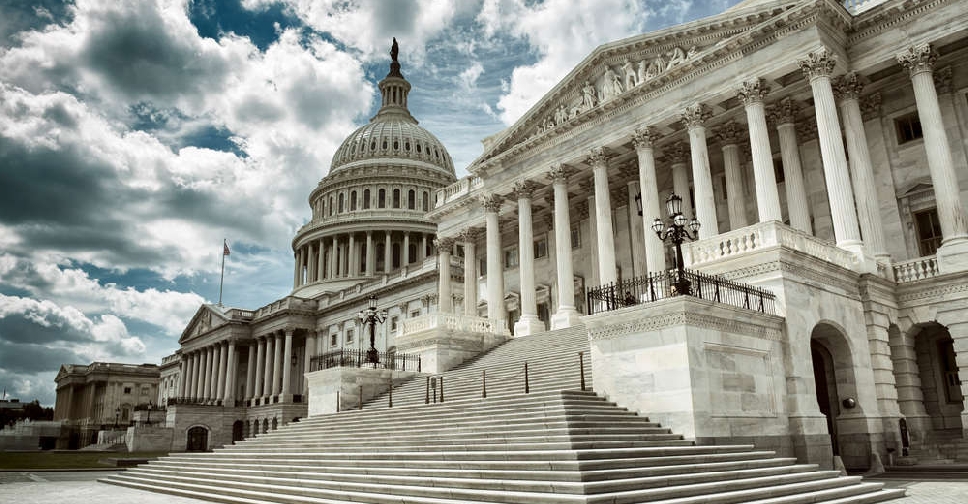
US President Donald Trump's administration froze $2.1 billion in Chicago transit funding on Friday, starving another Democratic city of funds as the government shutdown entered its third day.
Budget director Russ Vought said the money, earmarked for elevated train lines, had been put on hold to ensure it was not "flowing via race-based contracting."
The administration has now frozen at least $28 billion in funding for Democratic cities and states, escalating Trump's campaign to use the extraordinary power of the US government to punish political rivals.
The White House said later in the day it was identifying funds that could be withheld from Portland, Oregon, a left-leaning city that was home to high-profile protests during Trump's first term.
Trump has also threatened to fire more federal workers, beyond the 300,000 he is forcing out this year, and dozens of agencies have submitted workforce reduction plans, according to a White House source speaking on condition of anonymity.
The Republican president has made Chicago, the nation's third-largest city, a regular rhetorical punching bag and has threatened to send in National Guard troops.
Illinois Governor JB Pritzker, a high-profile Trump critic seen as a possible 2028 Democratic presidential candidate, said the funding freeze amounted to hostage-taking.
"It’s attempting to score political points but is instead hurting our economy and the hardworking people who rely on public transit," he said on social media.
The Illinois funding freeze follows moves on Wednesday to halt transit projects in New York, home to the top two Democrats in Congress, and green-energy projects in Democratic-leaning states like California and Colorado.
In a separate move, the Trump administration reversed its plan to cut $187 million in security funds for New York, Democratic Governor Kathy Hochul said.
In Washington, the shutdown stalemate showed no signs of ending.
The US Senate is due to vote on duelling Democratic and Republican plans to end the shutdown on Friday, but neither is likely to win passage.
If the shutdown continues into a fourth day Saturday, it will be the fifth-longest in US history.
Democrats and Republicans have spent the past several days blaming each other for their failure to keep the government funded beyond October 1, the start of the fiscal year, and they do not appear to have made any headway toward a deal that would allow the money to flow again.
The standoff in Congress has frozen about $1.7 trillion in funds for agency operations, which amounts to roughly one-quarter of annual federal spending.
Much of the remainder goes to health and retirement programmes and interest payments on the growing $37.5 trillion debt.
Democrats say any funding package must also expand pandemic-era healthcare subsidies due to expire at the end of December, while Republicans say that issue should be dealt with separately.
Nearly 8 in 10 Americans support keeping those subsidies in place, according to a Kaiser Family Foundation poll.
House of Representatives Speaker Mike Johnson, a Republican, said he is not troubled by Trump's pressure campaign, which undercuts Congress' constitutional authority over spending matters.
"President Trump is just as anxious as we are to get the government back open," he told reporters. "Is he trying to apply pressure to make that happen? He probably is, yeah. And I applaud that."
The shutdown, the 15th since 1981, has suspended scientific research, financial regulation, and a wide range of other activities.
Pay has been suspended for roughly 2 million federal workers, though troops, airport security screeners, and others deemed "essential" must still report to work.
On Friday, the government did not release its monthly unemployment report, leaving Wall Street guessing about the health of the world's largest economy.
A prolonged shutdown could disrupt air travel and food aid for millions of Americans, and also force federal courts to close. Federal workers would miss their first paycheck in mid-October if the standoff is not resolved by then.
The longest shutdown lasted 35 days in 2018-2019, during Trump's first term in office.
The Senate has three times already rejected a Republican plan, which would fund the government through November 21, and a Democratic alternative that would also bolster the expiring health subsidies. The chamber will vote on both of those plans again on Friday.
Republicans control both chambers of Congress, but they need at least seven Democratic votes to advance spending legislation in the Senate.
A group of senators from both parties say they have been exploring a compromise.
But some Democrats say they do not trust Republicans to honour any agreement that would first reopen the government and then tackle the healthcare subsidies, which were passed as part of a 2021 Democratic COVID relief package and now help 24 million Americans pay for coverage.




 Dubai Holding expands hospitality portfolio with acquisition in Mallorca
Dubai Holding expands hospitality portfolio with acquisition in Mallorca
 UMEX and SimTEX kick off with major UAE defence deals
UMEX and SimTEX kick off with major UAE defence deals
 ADNOC Gas signs $3 billion LNG deal with Hindustan Petroleum
ADNOC Gas signs $3 billion LNG deal with Hindustan Petroleum
 H.H. Sheikh Mohammed visits World of Coffee Dubai
H.H. Sheikh Mohammed visits World of Coffee Dubai


